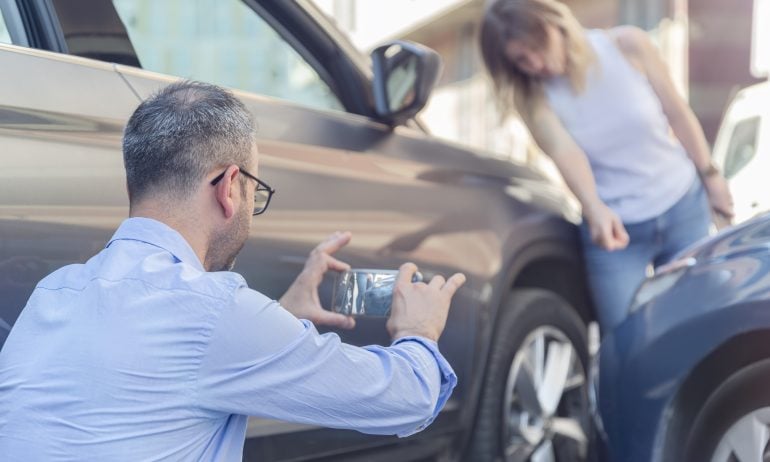When You Can Cash Out Your Car Insurance Claim Check

Many or all of the products featured here are from our partners who compensate us. This influences which products we write about and where and how the product appears on a page. However, this does not influence our evaluations. Our opinions are our own. Here is a list of our partners and here's how we make money.
After an accident, you might make a claim with your auto insurance provider, which estimates the cost of repairs and sends you a check, minus any deductible. When you get the insurance claim check, do you have to use the money to fix your car, or can you spend it however you’d like? It could be a hefty check, and you might not mind driving around with some scratches and dents — particularly if it’s an older car.
Whether you can “cash out” an insurance claim depends on a number of factors. Here are questions that will determine your answer.
Is the car yours?
If you don’t own your car outright, you’ll have to fix it. This applies whether you have an auto loan or lease your car. Your loan or lease agreement probably requires you to keep the car in good repair and, in the case of a lease, return it without damage.
Who is the claim check made out to?
If you have a loan or lease, your insurance claim check will probably be made out to both you and the lender or leasing company. Even if you own your car outright, some insurance companies pay the repair shop directly.
Where do you live?
Some states have regulations that dictate whether insurance companies can pay you directly for claims.
Massachusetts regulations require insurers to make claim checks “payable to the claimant, and the lienholder, if applicable.”
Ohio, on the other hand, says: “If your insurance company requires you to use a specific repair shop, the company must guarantee the shop’s work and assess no extra cost to you.” So your insurer might require a specific garage and send the check there.
» MORE: Compare auto insurance rates
How extensive is the damage?
You might decide you can live with a dent or scratch. But make sure damage hasn’t compromised important car systems or safety features. Federal law, for instance, requires cars to have bumpers. So if an accident tore off one of your bumpers, you have to get a new one.
Final warnings
You could also try to make repairs yourself, but be sure that you know what you’re doing, particularly if damage goes beyond the cosmetic. Today’s cars are incredibly complicated.
And if you’re not fixing damage, consider the fact that it could affect later claims. Future insurance payouts may not cover damage to the same area. Unrepaired damage also diminishes the value of your car.
On a similar note...



